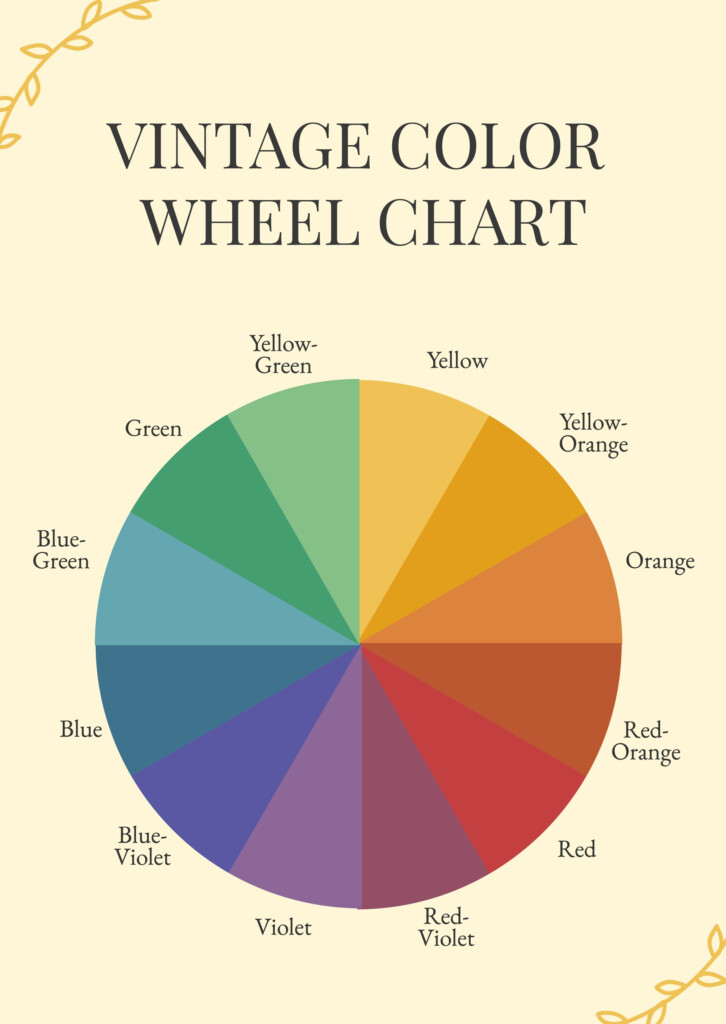Understanding the color wheel is essential for artists, designers, and anyone interested in working with colors. The color wheel is a visual representation of how colors relate to each other. It consists of primary colors (red, blue, yellow), secondary colors (green, orange, purple), and tertiary colors (mixing a primary and a secondary color).
Each color on the wheel is positioned in relation to others based on color harmony, which dictates how colors interact and complement each other. By using the color wheel, you can create aesthetically pleasing color schemes and understand the principles of color mixing.
Color Wheel Names Chart
Common Color Wheel Names
There are various color wheel charts available, each with different names for the colors. Some common color wheel names include:
- Red
- Orange
- Yellow
- Green
- Blue
- Purple
These primary and secondary colors are the building blocks of the color wheel and serve as the basis for creating more complex color relationships.
Using a Color Wheel Chart
When working with colors, it’s helpful to refer to a color wheel chart to guide your color choices. By identifying complementary colors (opposite each other on the wheel), analogous colors (next to each other), and triadic colors (equally spaced around the wheel), you can create visually appealing color combinations.
Whether you’re painting a masterpiece, designing a website, or choosing a color scheme for your home, the color wheel chart provides a useful tool for understanding and working with colors effectively.
